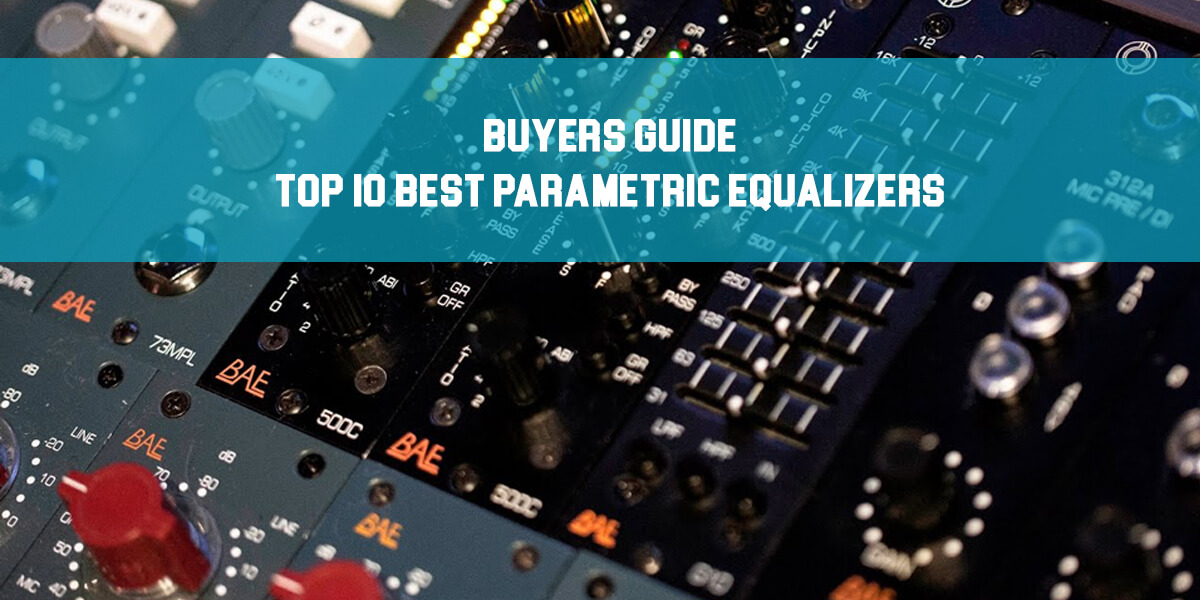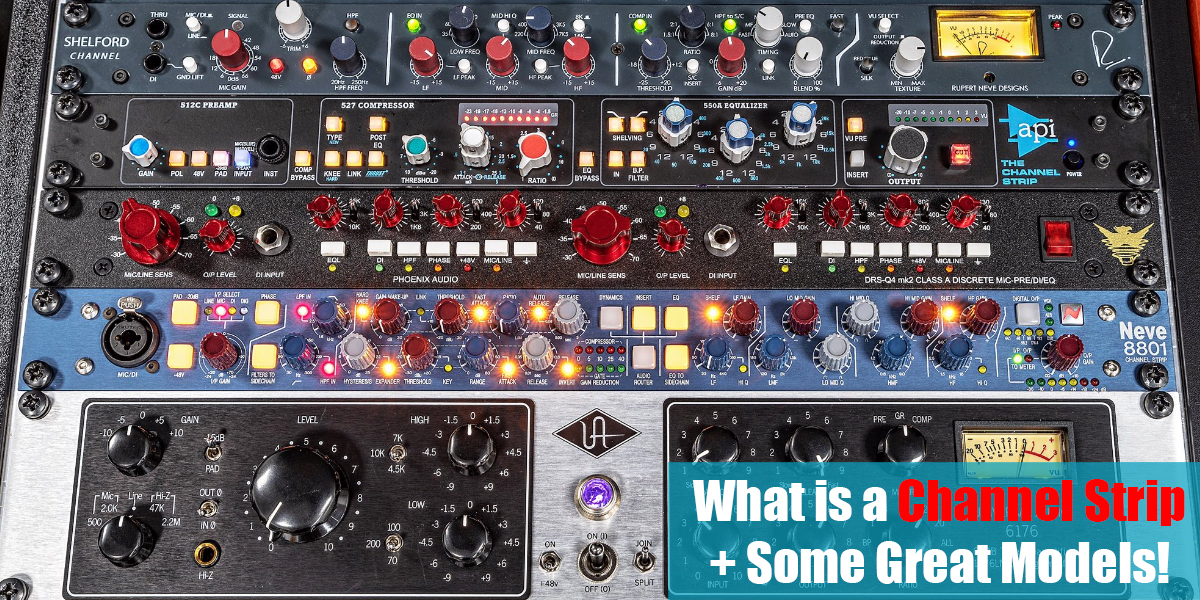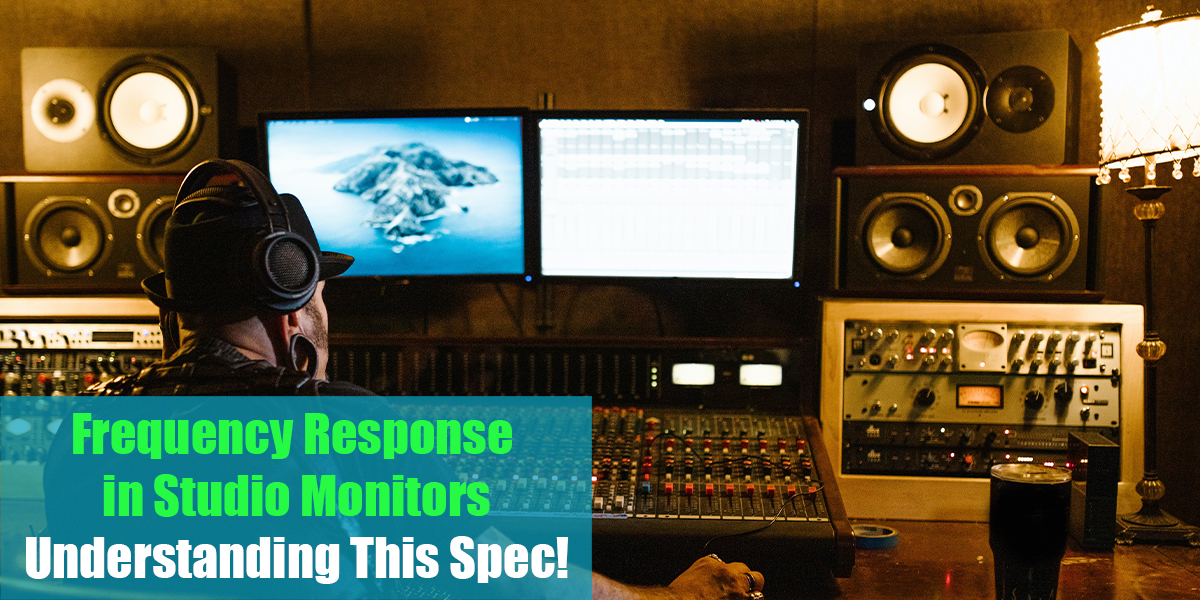How to Finish Your Mix
Introduction
Are you engaged on a variety of unfinished songs, with nothing accomplished? That is extraordinarily frequent with many producers.
It’s irritating to have a lot of projects, but nothing final. You simply wish to finish one of your tasks and release it into the world, however, you simply can’t help beginning one other tune you’ll never complete. If you wish to stop this behavior, we are going to train you on the easiest way to ending songs. Or at least, our best approach on finding out how to end a tune.
It’s hard to know when your tune is formally done. When you’re a perfectionist, it’s possible you’ll never be 100% pleased with the ultimate version. Nonetheless, don’t spend too much time dwelling on methods to perfect your track.
Whereas some producers might say that it’s best to simply laser concentrate on one good tune, we discover that finishing and completing quite a lot of okay ones is best to achieve your finish goal. In fact, you don’t need to formally release the tune or something.
The extra time you spend creating, the better you’ll turn out to be. The hundredth tune you complete will doubtless be way better, and simpler to finish, than the first. Your first track will most certainly not be nice so don’t really feel too much strain to make it excellent. Everybody has to begin somewhere, and trial and error is the biggest technique to be taught what works and what doesn’t.
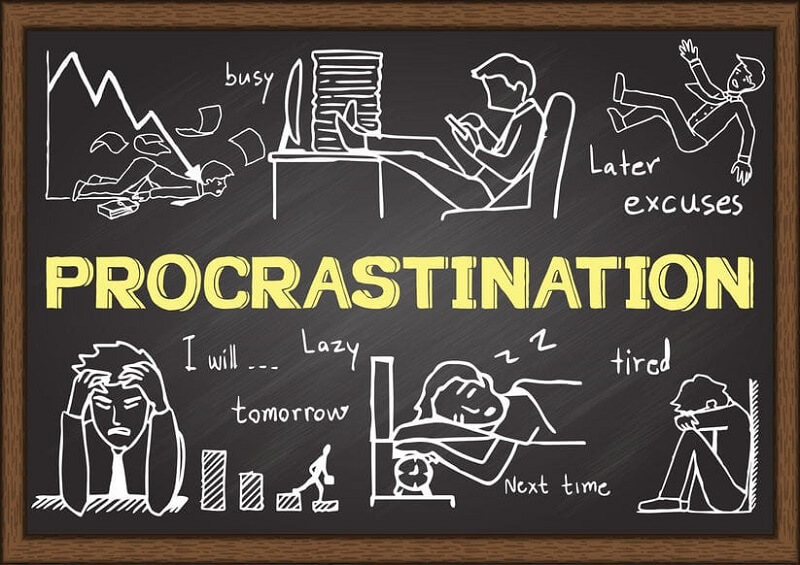
#1 Have Your Workspace Prepared
Inspiration can disappear as quickly as it seems. Once you’re inspired, the very last thing you need is to search for cables, connect hard drives and pedals, get your midi sync working, or tune your guitar. That’s why it’s vital to have your workspace set up and able to go. Preserve your gear plugged in and your instrument out of its case and in tune.
The ability to simply begin working additionally helps capture the artistic momentum that’s so vital to ending a tune. Everyone knows that feeling of getting within the zone and having the music simply pours out of us. Make sure you’re all the time set up and able to capture that moment.
#2 Name your Files
To maintain things organized, determine a naming system upfront and stick with it. Include clear and ample info. Keep away from things like Audio 4127 or Some Vocal Track. Everybody has done that and we have been lost in the project as soon as we begin working more deeply on it.
Make a folder for all of your productions. Arrange your DAW projects by month in it. In this manner, you’ll additionally be capable of maintaining track of your progress.
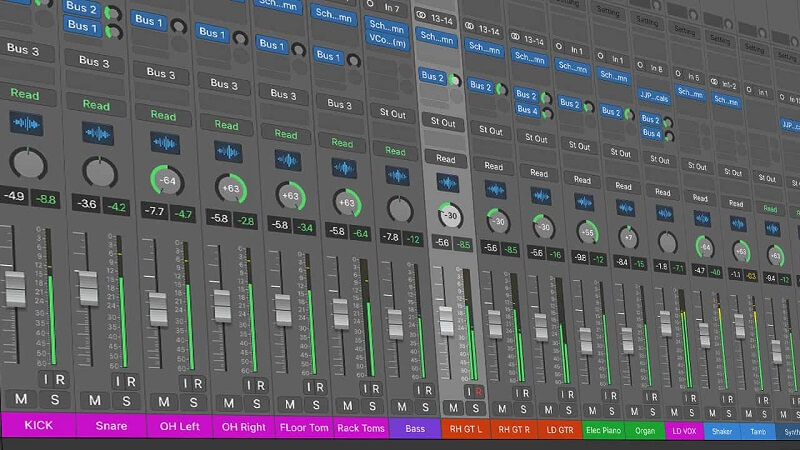
#3 Arrange first, then proceed with a Mix
Once you simultaneously mix and arrange, your thoughts are torn between being detail-oriented and seeing the large image. Your focus is fragmented, getting caught thinking about the small things while you wish to put all of your power into making your arrangement fascinating.
To complete your tracks quickly, arrange your tracks first, mix after. Begin all of your productions by ensuring all your elements match together. That you have a strong melody and hook, and that it sounds superb with minimal or no effects added.
When your full arrangement is completed, it’s time to mix. Doing the 2 separately makes sure you focus your full effort on the duty at hand. Mixing with all parts together, sounding nice, immediately turns into a breeze. You already know which sounds need to be centered on and which you need within the background.
#4 Use Reference Tracks
Loads of producers have the hassle of deciding what parts work finest for a specific part of the music. As an example, questions like, “are these chords better for the verse or better for the refrain?” As you study and enhance, decision-making will become easier. However when doubtful, look to the artists you admire. Use their music as a roadmap to guide you towards bettering your music. For instance, use parts of the songs you enjoy as beginning factors in your productions.
As an example, you possibly can work out how different artists are utilizing the chords of their music. Begin by listening to a track you want and utilizing a keyboard to work out the basic notes of the chords they’re playing. Then construct your chords from there. You can too make sketches of how their drum patterns change from part to part. Or, listen to the way in which the FX and drum fills are serving to transition from one part to the next.
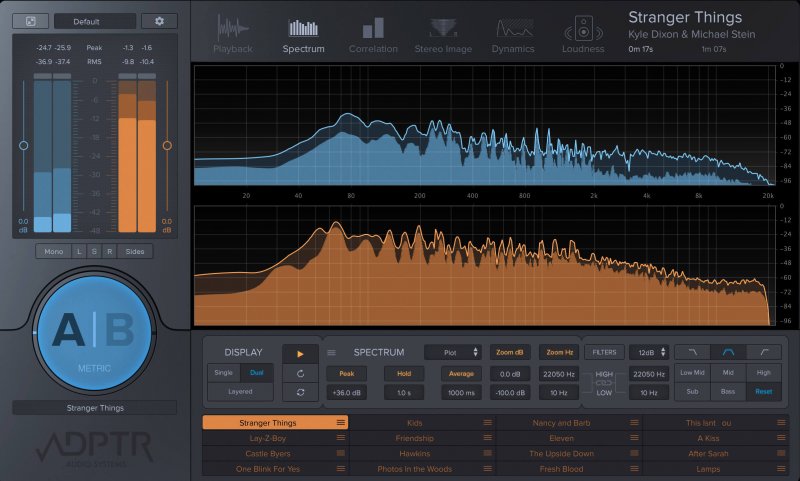
#5 Keep Track of the Process
Beginning a brand new track is pleasant, however forcing yourself to return and end an incomplete idea is not anywhere close to as fun. One proactive method to keep on track is with a simple notepad and pen.
Open a half-finished project, being positive to approach it with fresh ears, then have a single hear-through and make notes primarily based upon your immediate impressions. Which components need altering? Maybe a breakdown needs extending or shortening?
Maybe certain automation sweeps want adjusting to maximize tension? Write a listing, then work your method back through it and tick items off one by one.
#6 Kill the Procrastination
To beat procrastination, use the “begin with 5 minutes” method. Additionally, setting a time limit on a sure side of the work actually helps. Parkinson’s Law is an adage that states “work expands in order to fill the time out there for its completion.” This principally interprets to imply work you could probably get performed in 45 minutes when given the flexibleness, might additionally take you two hours. Set a time limit and cease your work when the time’s up.
It’s necessary to set an objective for yourself and spend time performing it. For instance, “my objective is to finish one tune per week.” You don’t need to fulfill these objectives, however, setting an end date is an efficient method to stop procrastination. Together with the paradox of choice, in case you don’t have a cause to finish a tune by a certain date, why would you? It’s simple to repeatedly push it to the wayside.
There’s at all times one thing more necessary. One method to stop that is to time block a certain time of day or day of the week. Dedicate this to your works in progress or the precise tune at hand. In the middle of your longer production classes, find some time to get some fresh air. It’s good to have breaks between productiveness.
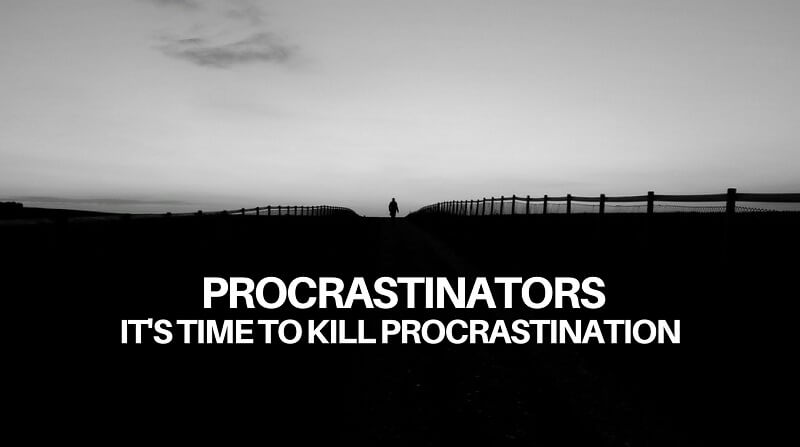
#7 Deadline Your Project
One other easy one. You’d be amazed at how setting a self-imposed deadline on something makes you really ruddy effectively do it. The internal push that you will feel when you have a deadline on a project will urge you to go and finish the job. This is an extra incentive to finish what you’ve started and actually come to an end of a certain project.
Setting yourself up with deadlines can actually enable you really get stuff performed, together with your music-making, so do it! This isn’t simply a recommendation for music, by the way; that is a recommendation for all times, so take it on board and act.
#8 Finish the Draft Before doing Revisions
How many times have you ever began a tune, and turn into hyper-focused on one thing relatively minor before the tune has been organized? If in case you have trouble ending songs, that is doubtless one of many predominant causes. After you have a whole tune laid out, ending it isn’t all that tough. You might spend a while swapping out samples or experimenting with various sound designs, but the hard half is finished.
Numerous producers like to begin with writing a tune’s refrain or drop, after which come up with verses, bridge, intro, and outro afterward. We favor putting in writing music from start to end; in that order. The only way to determine what works best for you is to experiment and write a variety of music. Finally, you’ll discover a routine and rhythm that permits you to shortly and persistently produce high-quality results.
#9 Keep Friends Out of the Studio
Sitting around in a studio with 10 of your mates is likely to be enjoyable when jamming out to tracks, but it’s not conducive to getting actual work done. Rappers are infamous for bringing swaths of people to record sessions with them, and these extra people often end up turning into a distraction.
We get that it’s fun recording in an expert studio and that you just need to bring your friends to test it out, however, for those who’re paying for studio time, it’s in your greatest interest to depart your posse at home.
As an engineer, you have got a duty to make sure that your clients are in a state that permits them to perform. By permitting them to become distracted, you do them a disservice. We have a set of studio guidelines and expectations that we send out to clients earlier than we work with them.
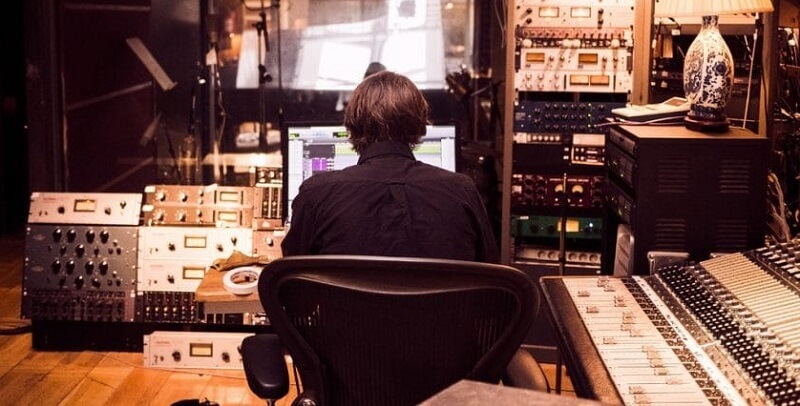
#10 Prepare to Keep Focused
Artistic types – and you’re one of those since you make music – usually flounder around on a number of projects, attempting to get a lot of various things done, all at the same time. The plus side is that a lot of ideas are swirling around in your head. The minus side is that a lot of ideas are swirling around in your head as well.
Try this: return to all of these songs in your hard drive from before and begin deleting them. You’ll be amazed that eradicating choices to your time-wasting truly makes you concentrate on the one brilliant tune you’re engaged in in the here and now. And all of the sudden, it’s possible you’ll even find it’s done.
#11 Manage your time in the Studio
As producers, there’s nothing we love more than kicking back for a night and jamming out with a bunch of synths and drum machines. However, where do you draw the line between hobbyists and pros?
Are you doing this to make some cool sounds, or to get precise music out there? We might advise you to focus on time administration and effort.
We are able to all apathetically twiddle synths and plugins, but it surely takes dedication and planning to pressure tracks out the door and into the arms of DJs and labels. Book studio time, set yourself deadlines, and pressure yourself to complete every little thing you begin.
#12 Stop the Obsessive Perfectionism
Obsessive perfectionism is extraordinarily debilitating. It does not matter if it is in everyday life or music production, making an attempt to make every part faultless is a harmful and wasteful sport. It’s additionally the primary destroyer of creativity.
And let us tell you a secret. Perfection doesn’t exist. So why hassle? While you enter the state of perfectionism, you develop into an insecure person, filled with guilt. You develop into over-sensitive and bitter, afraid of creating even the smallest mistake.
Being perfectionistic in artistic areas, such as within the studio, makes you raise your requirements to an unreasonably excessive level. Perfectionism builds walls and restrictions that fully halts free-flowing creativity.
You begin projects and get irritated when nothing sounds the way in which it should. You attempt countless combinations of sounds and melodies, however, in your thoughts, it simply doesn’t sound adequate. You get annoyed and leave your studio, fully annoyed with yourself for not having the ability to come up with something good.

#13 Take a Break and Delete
Okay, so you’ve been making a track in your DAW for just a few hours. There are ten variations of the bassline, a bunch of unused samples, and bypassed plugins simply sitting there.
Our ears get drained, they usually develop into fatigued from an 8-hour studio session. It’s essential to present yourself with 20 or 30-minute breaks every two hours or so. It’s additionally good to take longer breaks from a track.
For instance, take a day or perhaps a week away from your track. When you come back to it, you’ll have fresh ears and will be capable to hear particulars that weren’t noticeable before. Taking breaks additionally helps you reset and get back to being productive.
Chaos is a product of creativity. Don’t let it get out of hand. Take a break and begin cleaning things up. When a track gets too messy, either delete what you don’t want or scratch it and begin something new.
#14 Work on the Song Later
Sometimes the very best factor to do is stroll away from a track. Once in a while you simply want a break for a couple of minutes or hours. In different instances, it’s best to put away a track for just a few days. Distancing yourself from a project can give you a fresh perspective, and allow you to effortlessly give new ideas.
We are fairly cautious about bench-warming a track for too long. Dropping the spark that made you wish to write the track in the first place is a harmful possibility, and it’s not at all times possible to get it back. When you plan to return to a track at a later point in time, be sure you’ve sputtered out the core parts of the track into your DAW first. Doing this makes returning to the track a matter of cleanup and refinement, somewhat more than a birthing of ideas.
#15 Ask for Help
Generally bringing a colleague into your studio is all that’s required to get the artistic juices flowing. A second person’s input will help break your tunnel vision and provide you with a unique perspective on your track.
Getting somebody who knows completely nothing about music to critique your work will be useful; they’ll seemingly have a tough time articulating what it’s about a song that they like/dislike, however, they’ll be capable to give you a track evaluation from the angle of an ordinary listener.
On the opposite end of the spectrum, knowledgeable music producers and/or audio engineers will be capable of articulating what they like/dislike about your music clearly. They will give you perception on methods to modify your track; that is where an average Joe off the road and an educated audio professional differ in their capacity to help you.
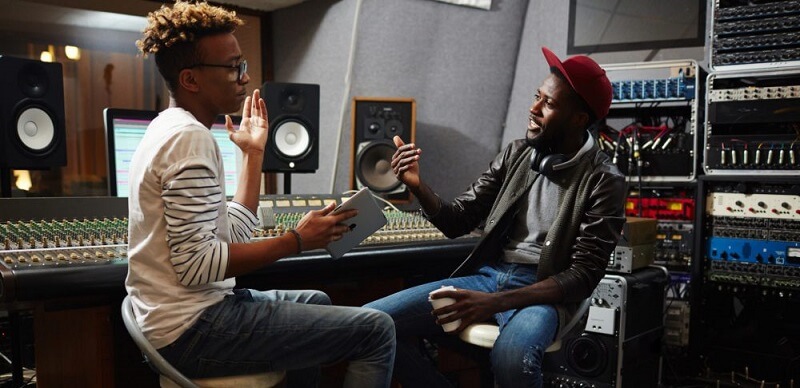
Conclusion
Now, you’ve obtained a roadmap for how you can end your next tune. As we stated above, these items do require time and laborious work. You can’t anticipate completing music quicker at a professional rate immediately and even after your hundredth tune.
Singing and producing isn’t something that may all the time be natural, even when you’re a master at it. Even after you master this process, you’ll seemingly come back to expertise artistic block sooner or later. Don’t surrender if you end up caught though.
People’s expertise blocks and gets creatively caught day after day. The most important and most profitable artists get author’s block and have problems completing songs. Artists and songwriters who headline and sell out venues get this very same feeling as you do. As an alternative to getting pissed off you can’t make one thing you’re 100% pleased with, it’s a part of being human. Music production is no stroll in the park.
Don’t attempt to force creativity. That’s simply not how creativity works, you don’t simply get a modern concept because you need it. Something can naturally set off creativity. Let your thoughts wander and loosen up, but listen to it and what influences it.
Possibly sitting in a certain spot helps your thoughts be free, perhaps your most open whenever you’re doing yoga. It’s necessary to know that simply since you’re doing actions to set off your creativity, it won’t all the time be there. Don’t get pissed off, trust the method, and let yourself think freely.



